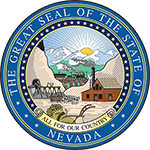Sales and Use, Consumer Use, Cigarette & Other Tobacco Products, Liquor and Live Entertainment Tax are now available on the new My Nevada Tax. My Nevada Tax Instructional Videos
The Reno office has moved to 9850 Double R Blvd., Reno, NV 89521.
Start your search …
Explore popular tax topics …
Start your search …
Explore popular topics …



